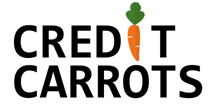The COVID-19 pandemic has caused most economies to grind to a halt.
To combat this, governments and central banks around the world have released massive monetary stimulus packages to help stabilize the economy.
The scale of this stimulus is unprecedented. The central bank has openly said that congress has given them the authority to use all the tools at their disposal – and they have significant tools. If people want to withdraw cash, they will print as much money as needed so that the banks don’t run out of physical currency. If people want to sell their assets (such as bonds), then the central bank will step up to buy it to prevent a massive price drop due to too many sellers. If banks and businesses need loans, then the central bank will be there as the lender of last resort to make sure they have access to money.
As we’ve discussed in other articles, there is no limit to the amount of money that the federal government can create. They’re now using the full force of this ability to try and keep people from going bankrupt, and businesses from collapsing.
The primary stimulus for individuals has come in the form of things such as the Economic Impact Payment in the USA, and CERB payments in Canada. The Economic Impact Payment alone created over 250 billion dollars, and put it directly into people’s pockets.
However, creating more money out of thin air typically leads to inflation. Will the coronavirus stimulus payments cause unhealthy inflation in our economies?
The short answer is: probably not. But why? How can it be that we are creating so much money, and yet the dollar is not decreasing in value.
This comes back to what inflation really is. Let’s remember that inflation is a measure of the average price increase for a basket of goods that include key items that everyone needs (food, shelter, clothing etc.). This means that in order for inflation to happen, businesses have to raise the prices of the goods and services they offer.
Will businesses be raising prices as a result of the coronavirus stimulus money flying around? We don’t think so. At least, not right now.

Due to the amount of unemployment that the pandemic has created, no one’s going out and splurging. As of summer 2020, there isn’t even a sniff of a scenario where there are so many buyers for the same goods and services that businesses are increasing their prices across the board. If anything, businesses are having pandemic recovery sales right now to try and entice people to come back into their stores.
Now, there is still a possibility that we can have unhealthy inflation if employment levels recover much more quickly than expected, and everyone is all of the sudden spending and borrowing at pre-pandemic levels.
If you want to protect yourself against inflation, then look into buying assets such as inflation-linked bonds, gold, and commodities as these items tend to go up in price as inflation rises (top right quandrant of the image below).

We are not financial advisors, and no content on this site should not be taken as financial advice. No guarantee can be made if you invest based on the information provided on this blog. We make no warranty of any kind regarding the blog and/or any content, data, materials, information, products or services provided on the blog.











Leave a Comment